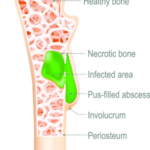‘Patients with rheumatologic diseases are rightfully concerned about the risk of flares after getting their COVID vaccines, especially after holding immune modulators,’ says says Physician Editor Bharat Kumar, MD, MME, FACP, FAAAAI, RhMSUS. ‘A new study is reassuring that flares are rare, even after holding or discontinuing immune modulators.’ The development of a vaccine for…








